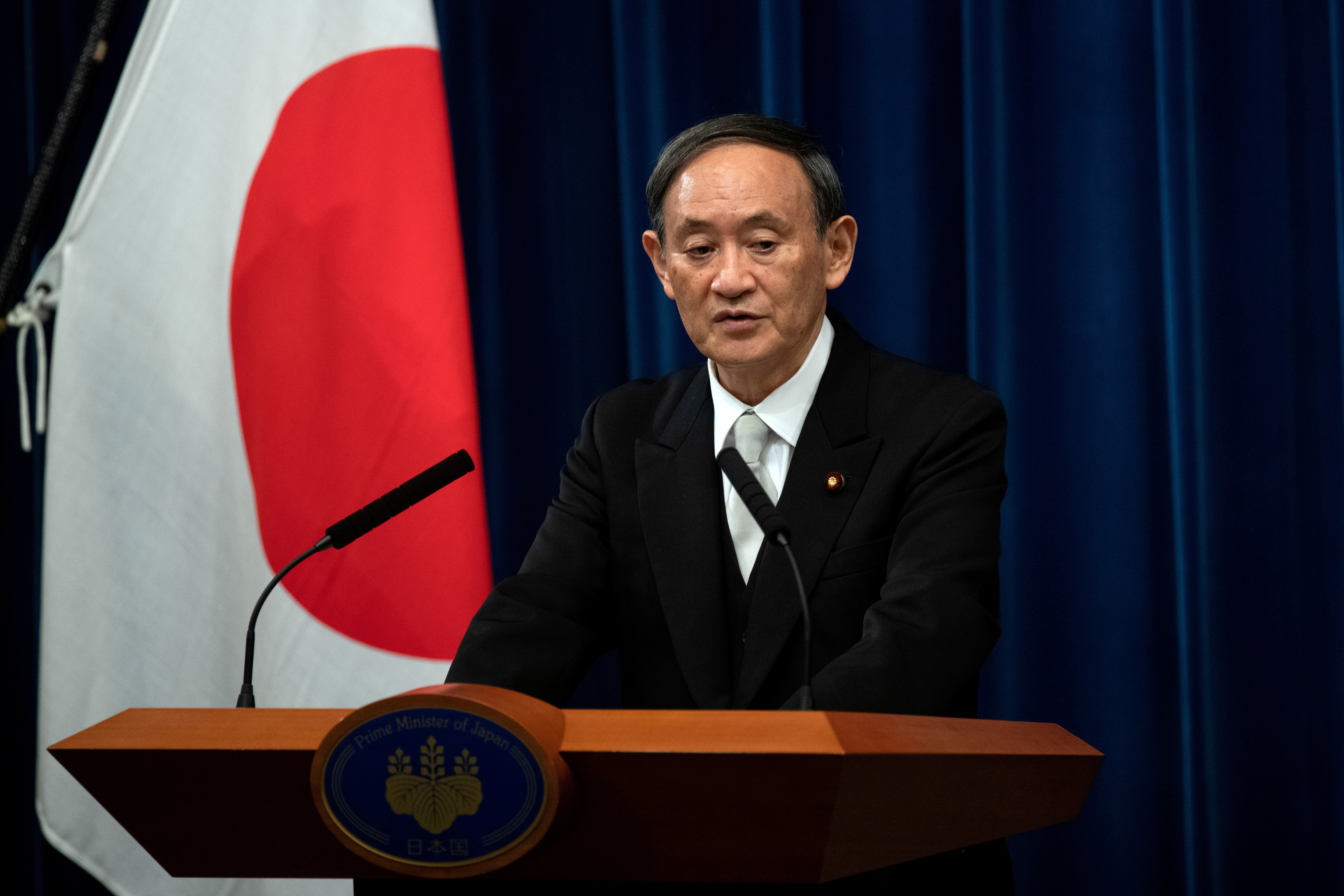Japan ‘to pledge net zero emissions by 2050’ in major policy shift
Target will replace current goal of reducing emissions by 80 per cent over same time frame

Your support helps us to tell the story
From reproductive rights to climate change to Big Tech, The Independent is on the ground when the story is developing. Whether it's investigating the financials of Elon Musk's pro-Trump PAC or producing our latest documentary, 'The A Word', which shines a light on the American women fighting for reproductive rights, we know how important it is to parse out the facts from the messaging.
At such a critical moment in US history, we need reporters on the ground. Your donation allows us to keep sending journalists to speak to both sides of the story.
The Independent is trusted by Americans across the entire political spectrum. And unlike many other quality news outlets, we choose not to lock Americans out of our reporting and analysis with paywalls. We believe quality journalism should be available to everyone, paid for by those who can afford it.
Your support makes all the difference.Japan, the world’s fifth biggest emitter of CO2, is to bring in legally binding targets to reach net-zero emissions by the year 2050.
Prime Minister Yoshihide Suga is set to announce the target during his first address to parliament on Monday after taking office last week, according to a report in Nikkei Asia.
The target will bring Japan in line with the aims of the European Union, which set the same goal last year.
The decision will make Japan, the world's third-largest economy, the second Asian country after South Korea to aim for the 2050 target.
The goal is the minimum emissions reductions required under the Paris agreement to keep global average temperatures from rising by more than 1.5C since the pre-industrial era.
Japan had already pledged to rein-in greenhouse gas emissions by 80 per cent in the same time frame, but the lack of any clear commitment beyond that meant the government had been accused of being vague and reluctant to tackle the climate crisis.
In order to reach the target, it is likely Japan will have to revise its energy generation plans significantly.
According to Nikkei Asia, the country’s current plans stipulate that by 2030, some 56 per cent will still come from thermal power generation dependent on fossil fuels such as coal and gas, renewables such as solar and wind will make up 22 - 24 per cent and nuclear would account for 20 -24 per cent.
In comparison, in the UK, the proportion of electricity generated from renewables was 44.6 per cent in the second quarter of 2020, while coal accounted for only 0.5 per cent, a record low, and gas accounted for 34.4 per cent. Nuclear generation accounted for 17.6 per cent of total electricity production, the government said last month.
Investors said the apparent change in Japanese policy is at odds with the country’s plans to roll out new coal stations.
“Any net zero commitment from a coal-intensive economy, such as Japan, has to be coupled with an urgent and credible coal phase out plan to be taken seriously,” Jan Erik Saugestad, chief executive of Norway's Storebrand Asset Management told Reuters.
Storebrand manages around $90bn worth of investments in Japanese companies and has been critical of Japan's stance on coal.
“Japan's solar and wind power potential is huge and Prime Minister Suga has the opportunity to accelerate this and embrace a modern and coal-free energy system,” Mr Saugestad said.
Dr Kristin Surak, assistant professor in sociology at the LSE and former Senior Lecturer of Japanese Politics at Soas, told The Independent the shift to renewable power “won’t be easy, but it is doable”, particularly if the government coordinates the move.
She said: “In addition to fossil fuels, Japan has traditionally relied heavily on nuclear power, which supplied about 30 per cent of its energy before 2011. It was aiming to expand this yet further to 50 per cent before the Fukushima disaster scuttled the plans. Now it is retooling those interests into exploring green energy options.
“The barriers to decarbonising are comparatively few. As Japan imports nearly all of its oil and coal, there will be little domestic push back from fossil fuel producers against the shift. Furthermore, green energy provides possibilities for producing energy more locally, which also means more jobs and a boost to construction.”
She added: “Japan has long relied on a steady supply of infrastructure projects - from highspeed railways to gigantic bridges - to drive both the economy and support for the ruling Liberal Democratic Party. Green energy is simply the next strategy for continuing this system, but one with a potentially positive environmental impact.”
Japan’s policy change comes just weeks after China surprised the UN General Assembly when Xi Jinping announced the country was aiming to hit net zero carbon emissions by 2060. It is the first time China, the largest greenhouse gas emitter in the world, has made such a pledge.



Join our commenting forum
Join thought-provoking conversations, follow other Independent readers and see their replies
Comments